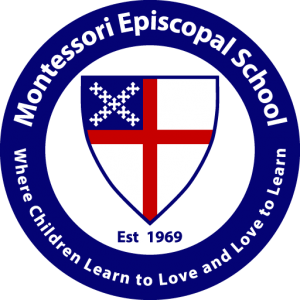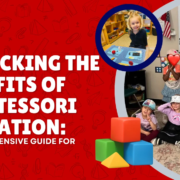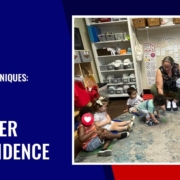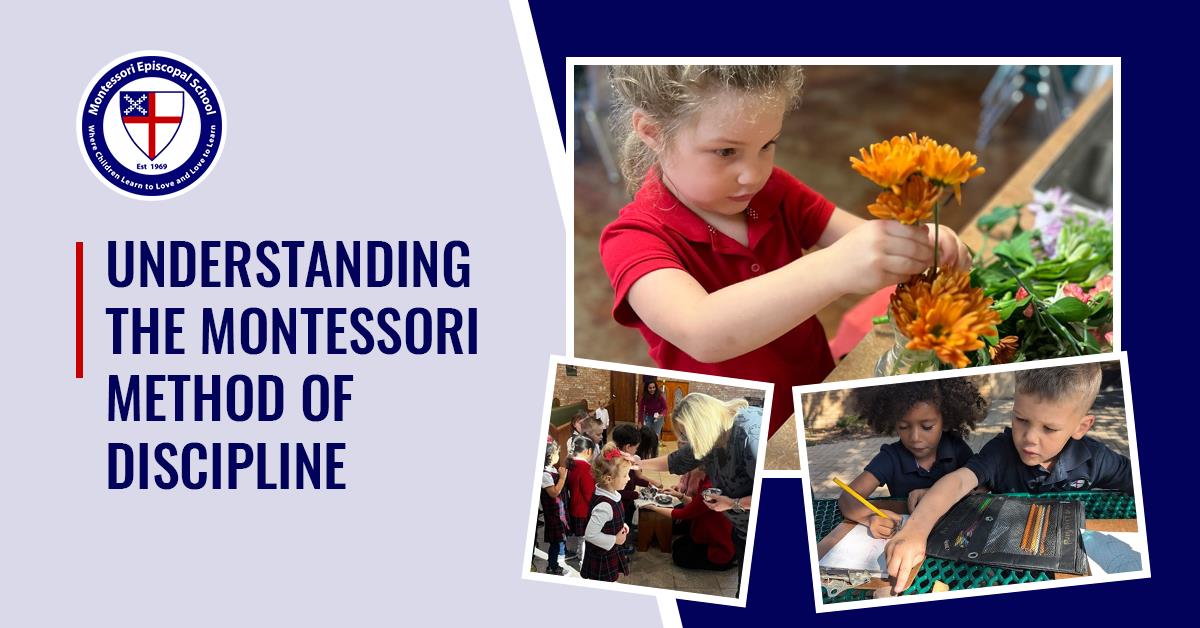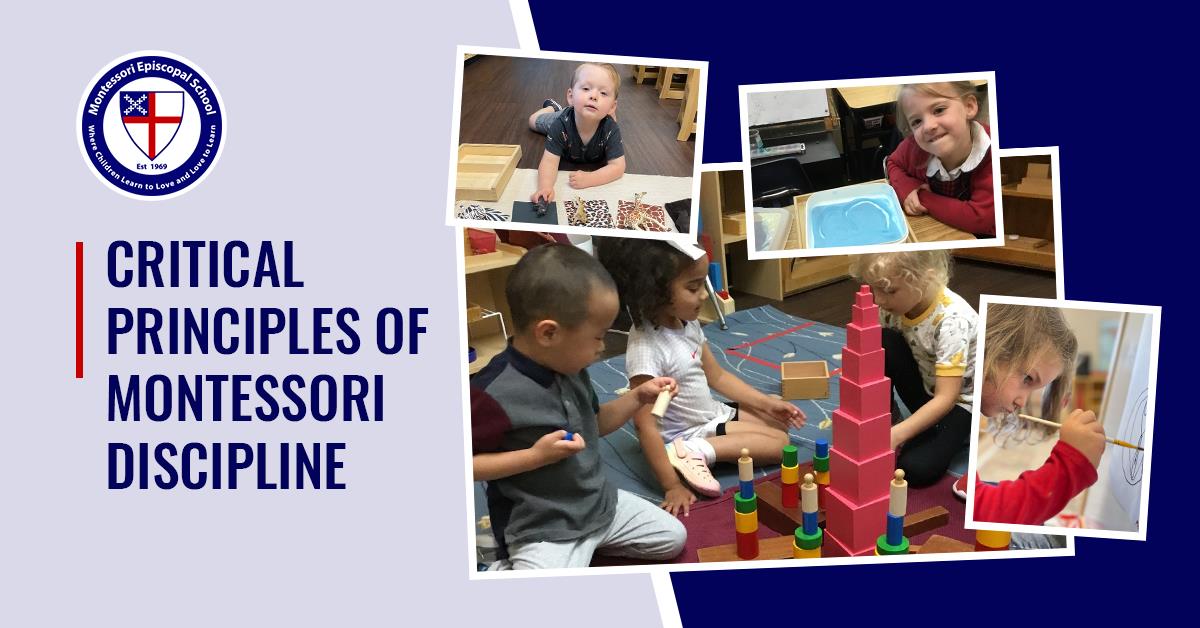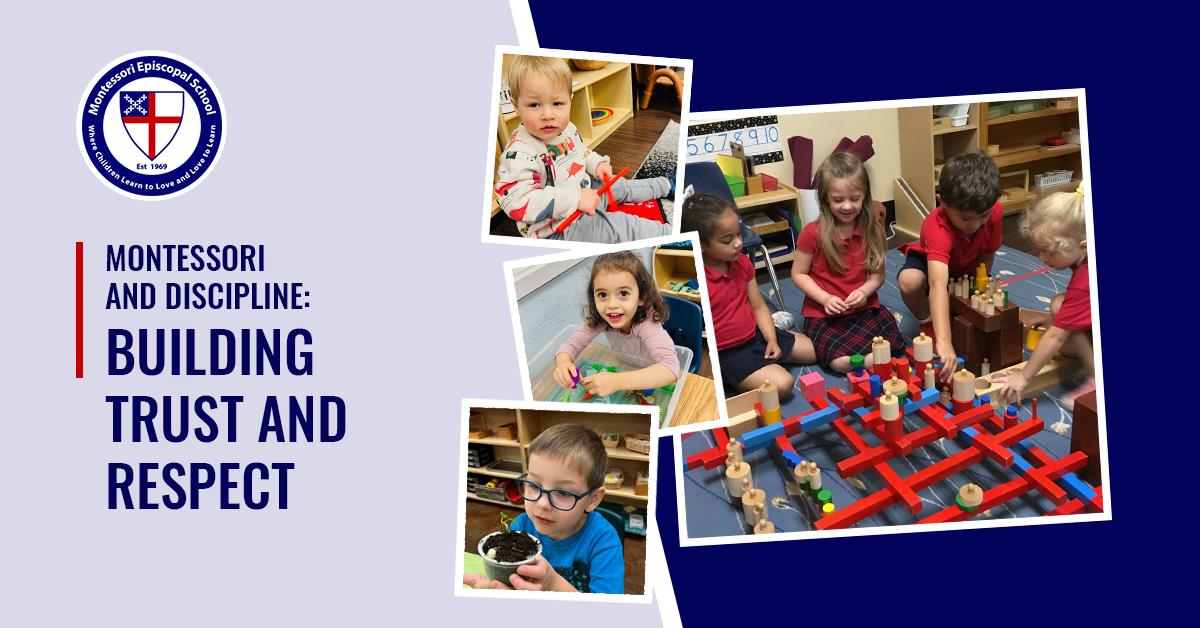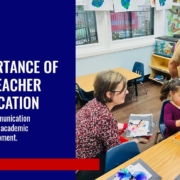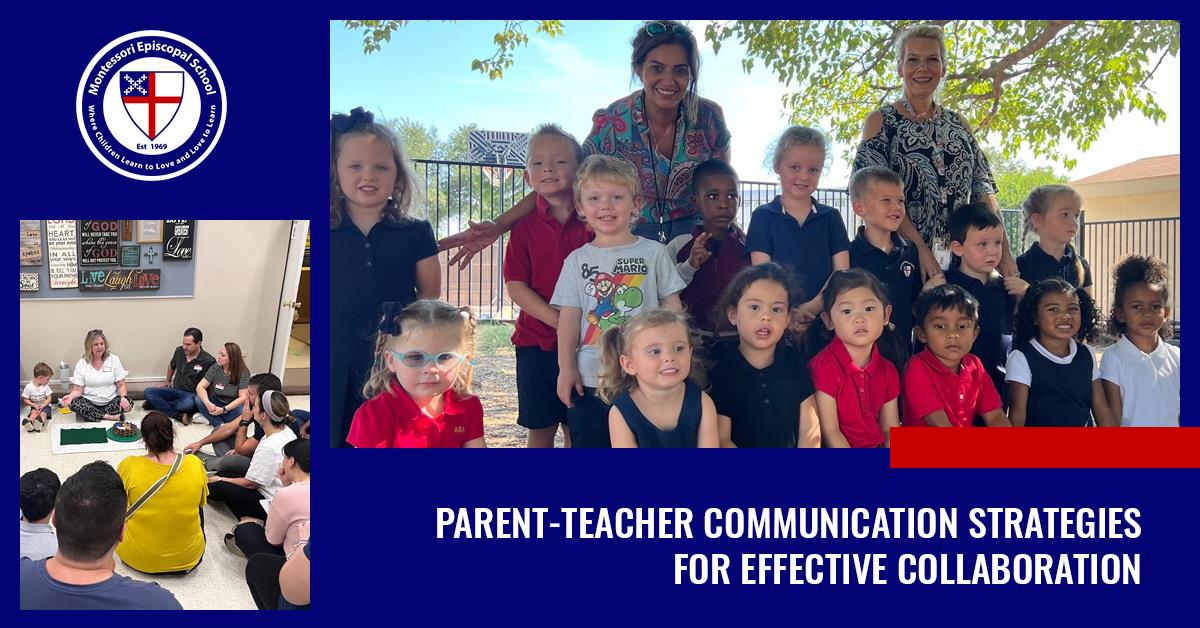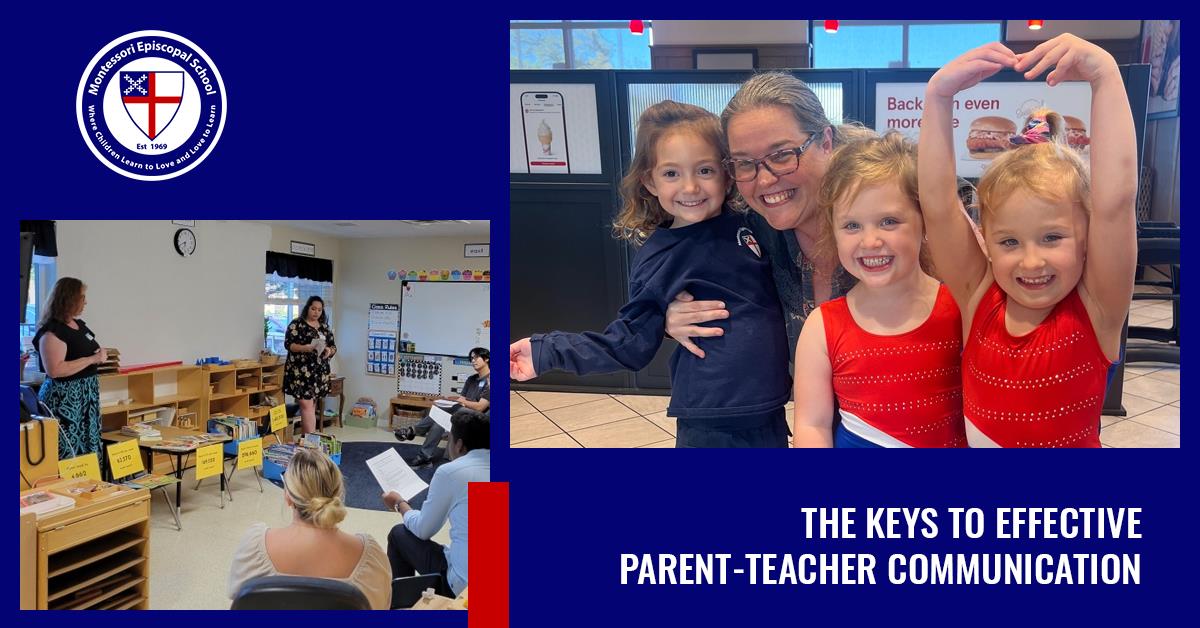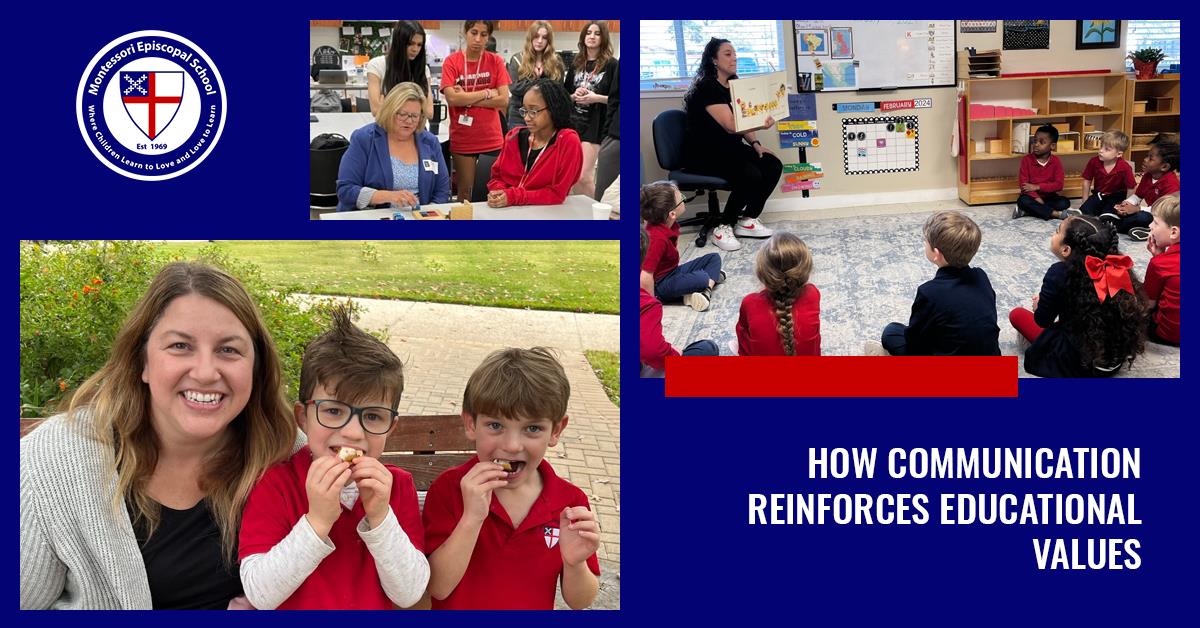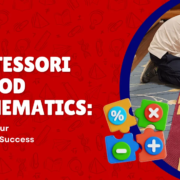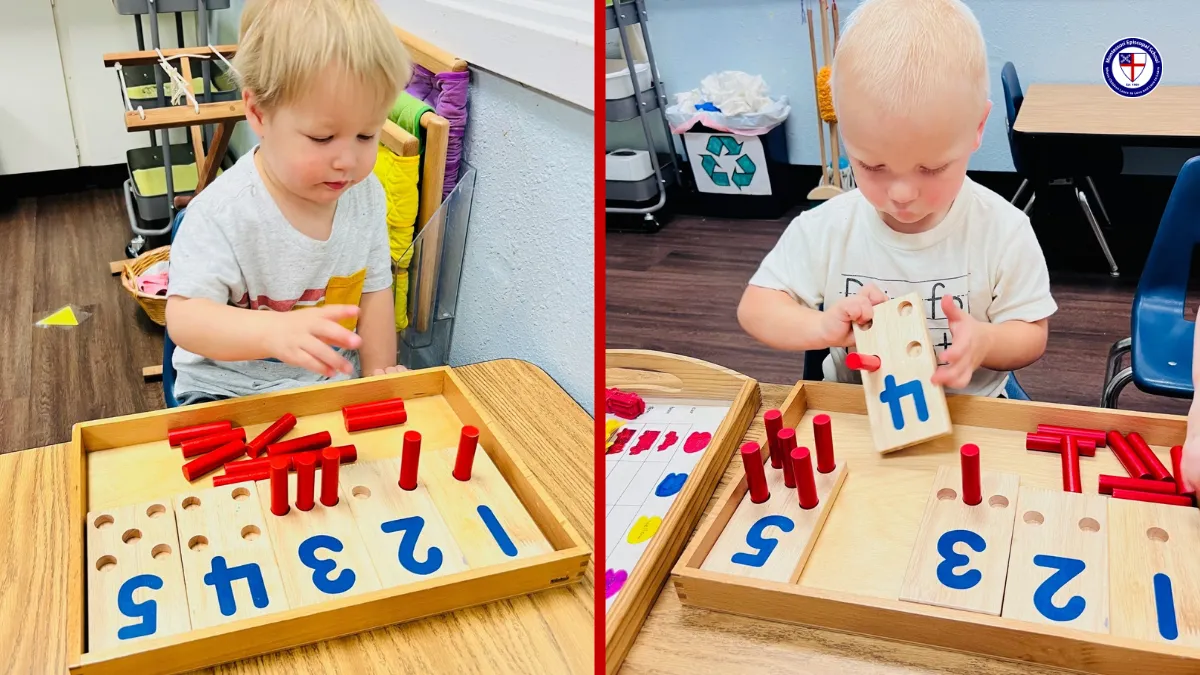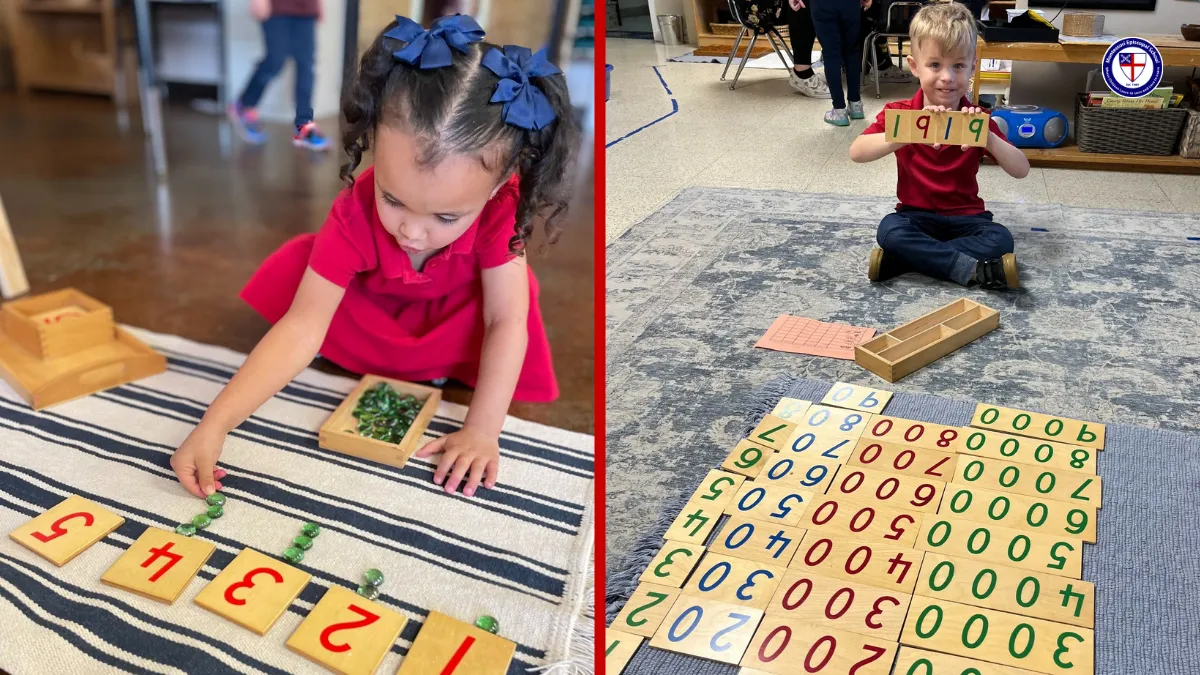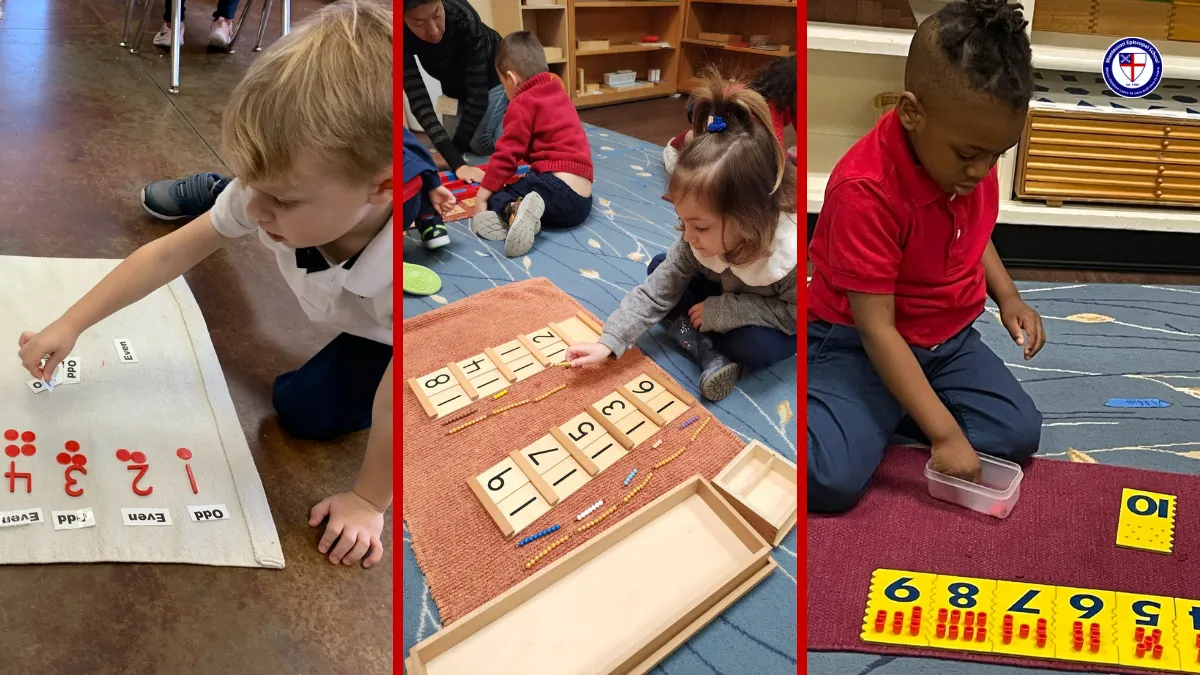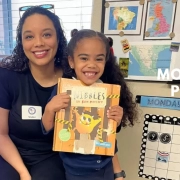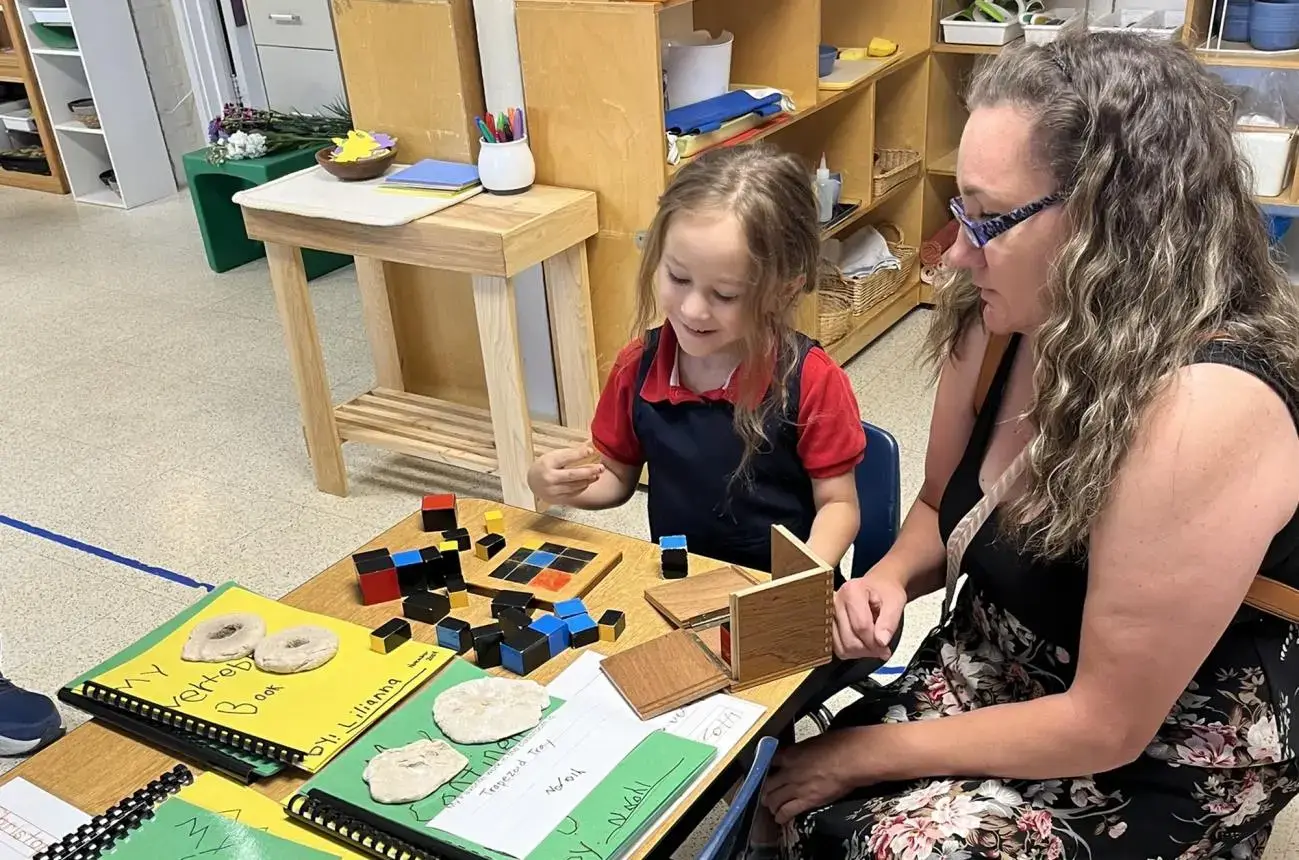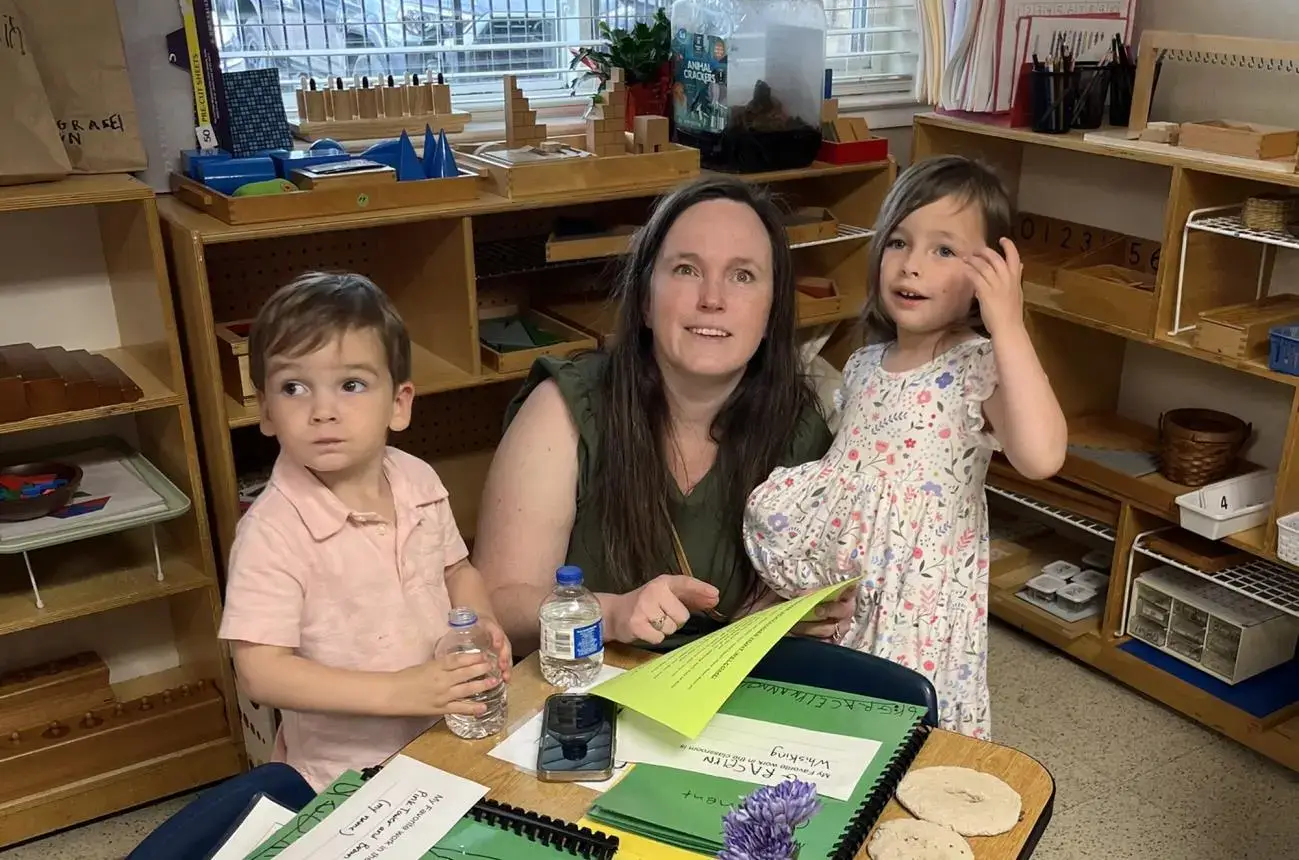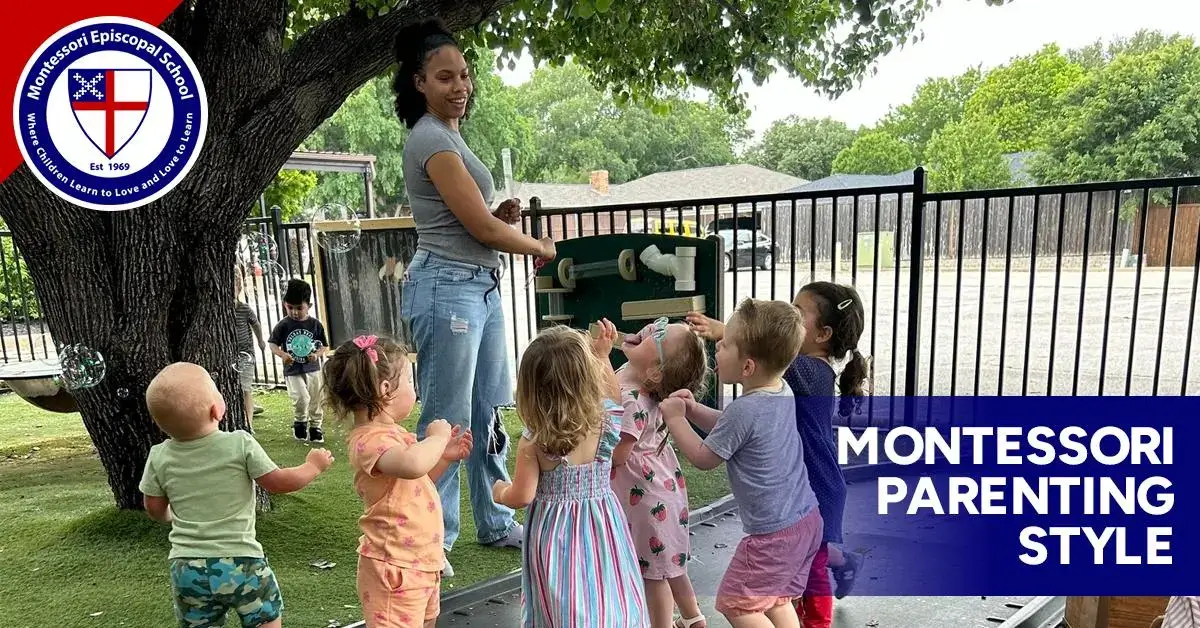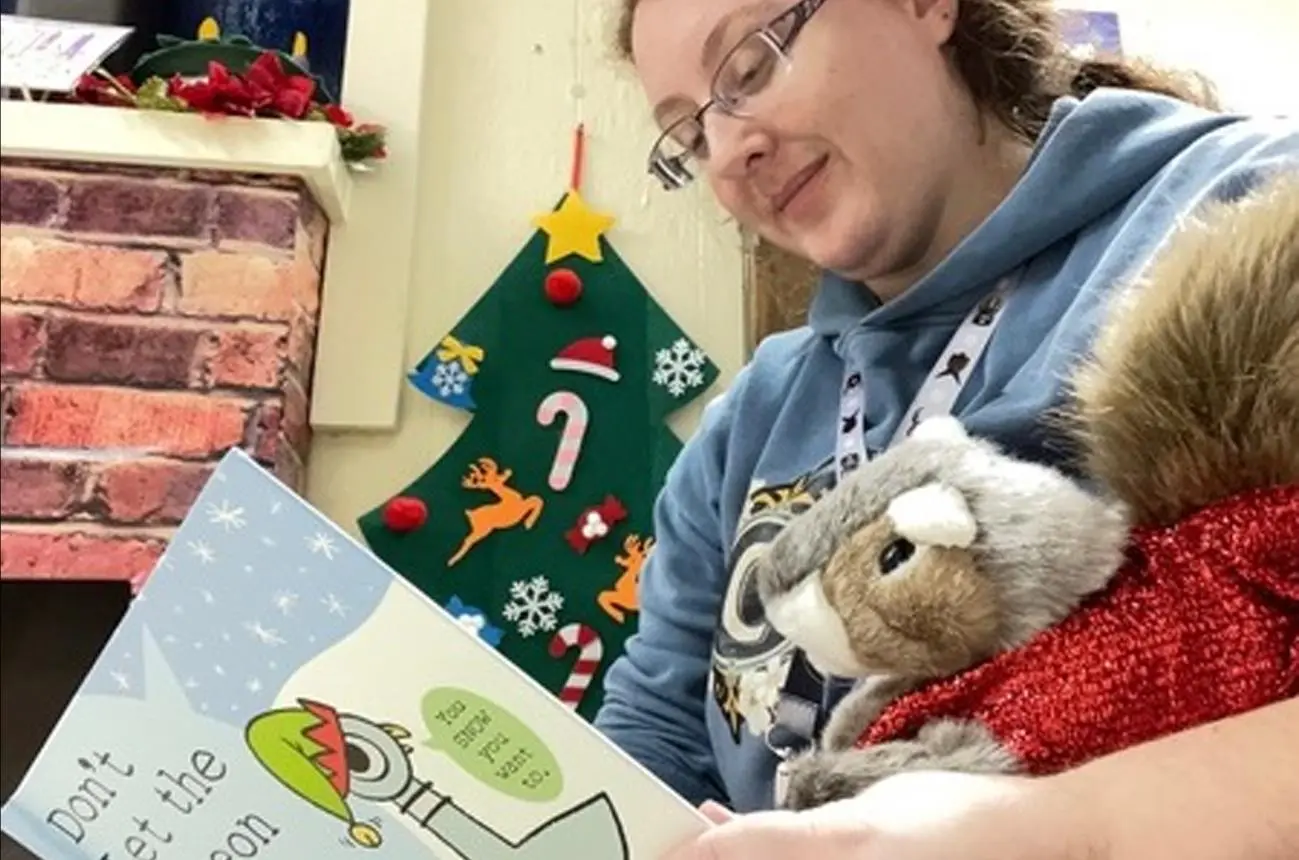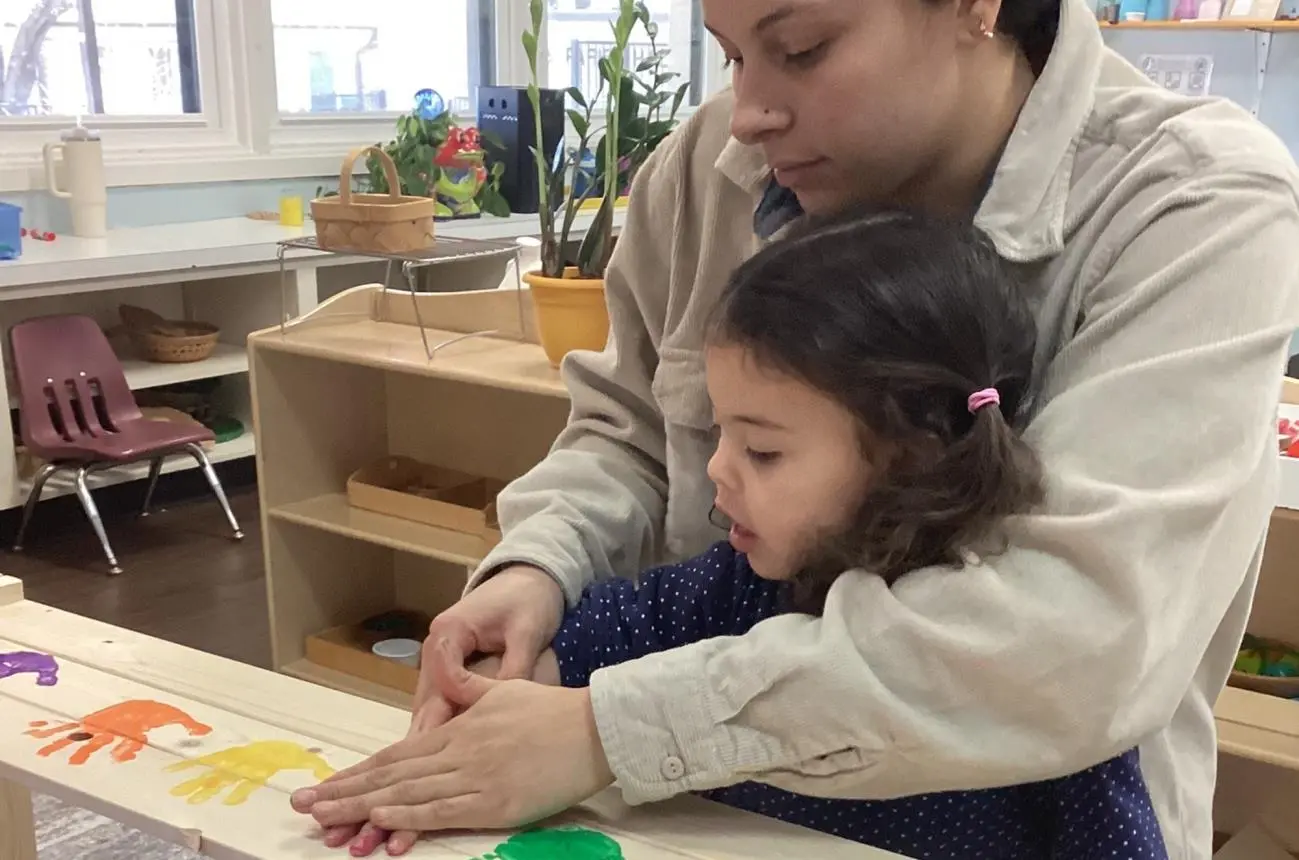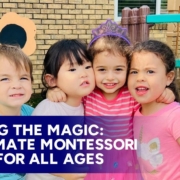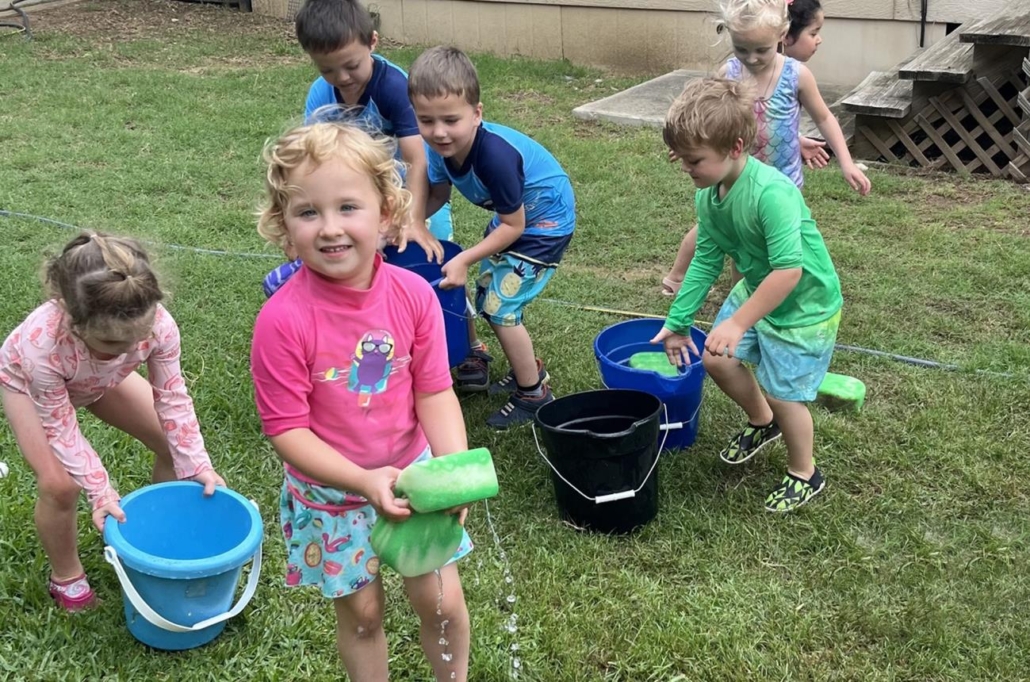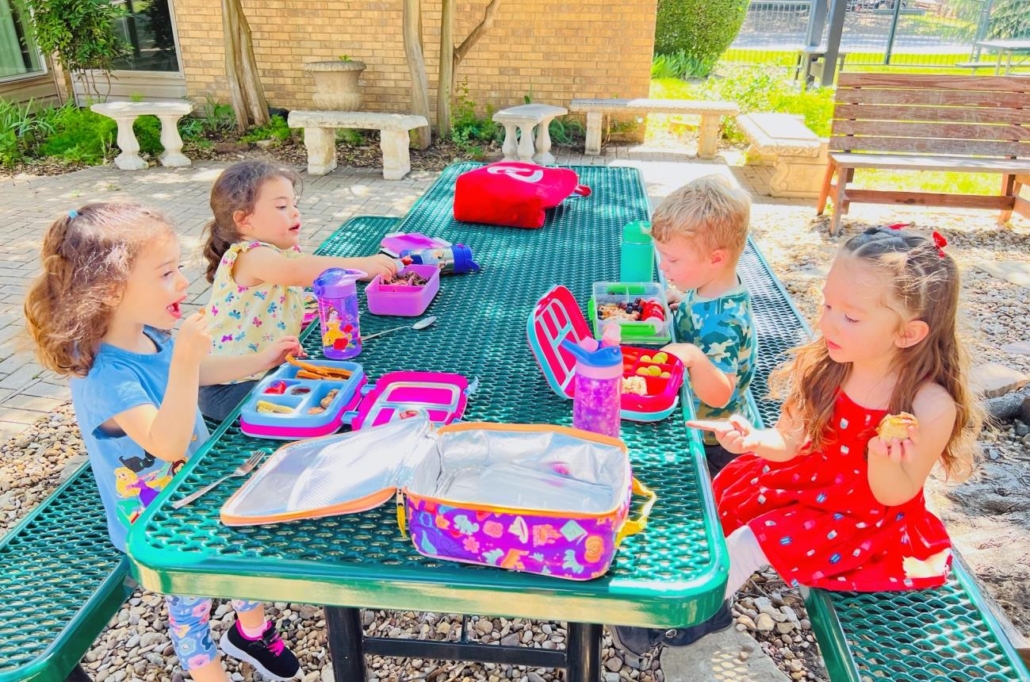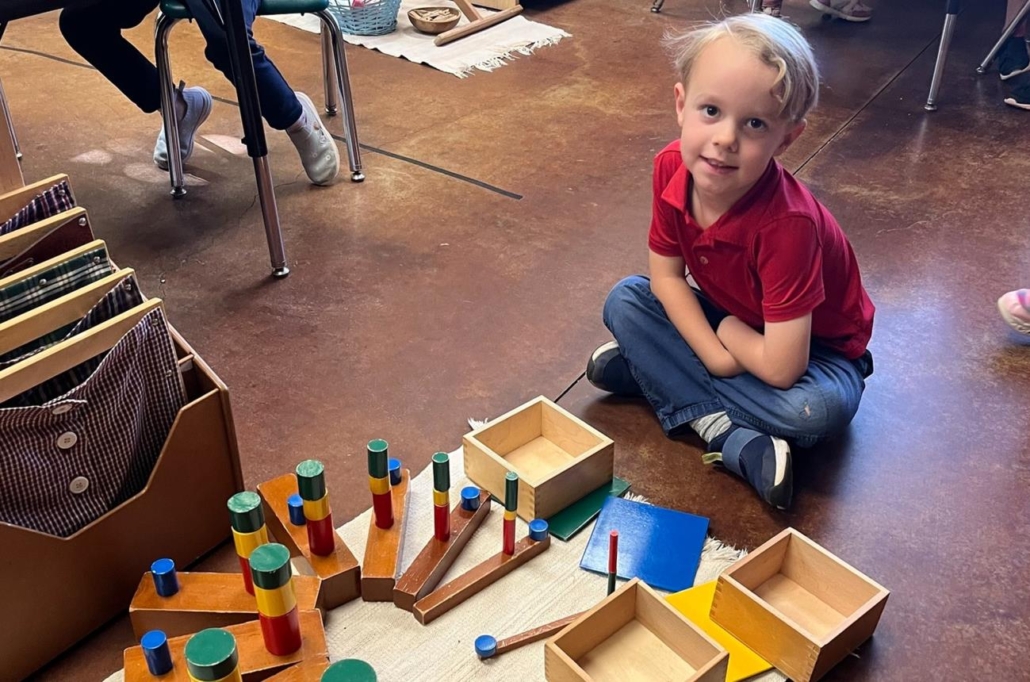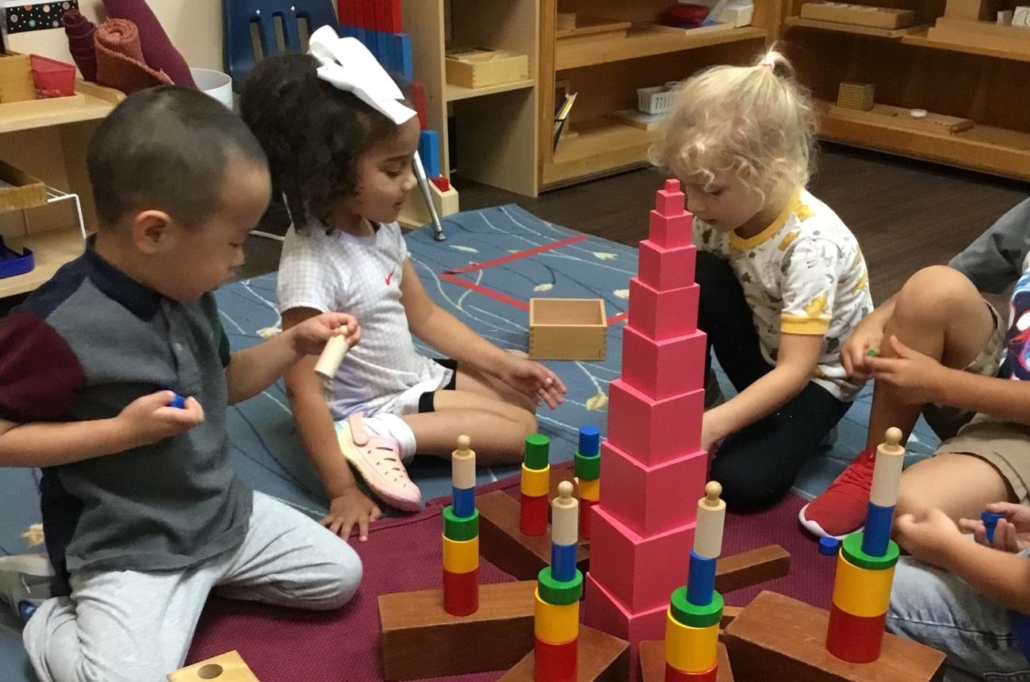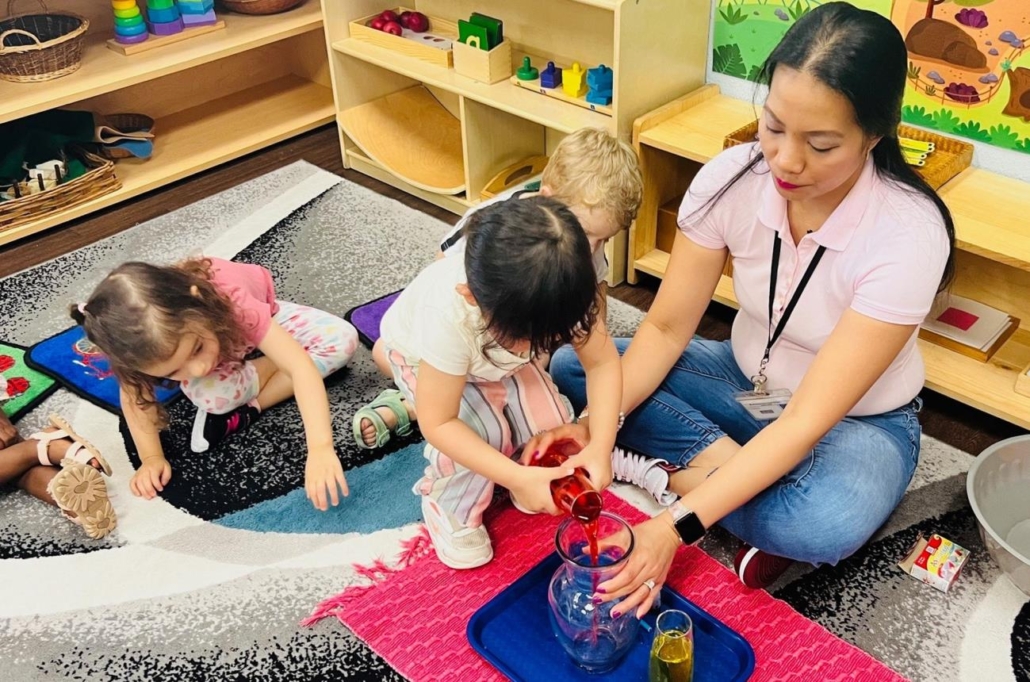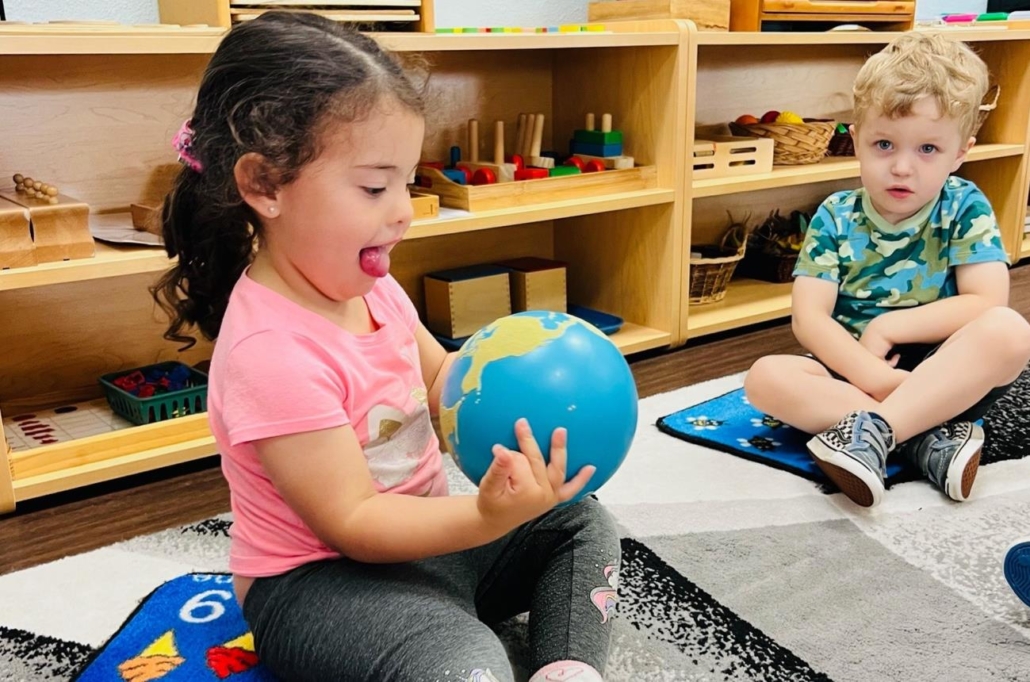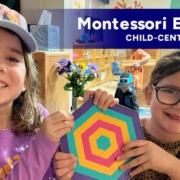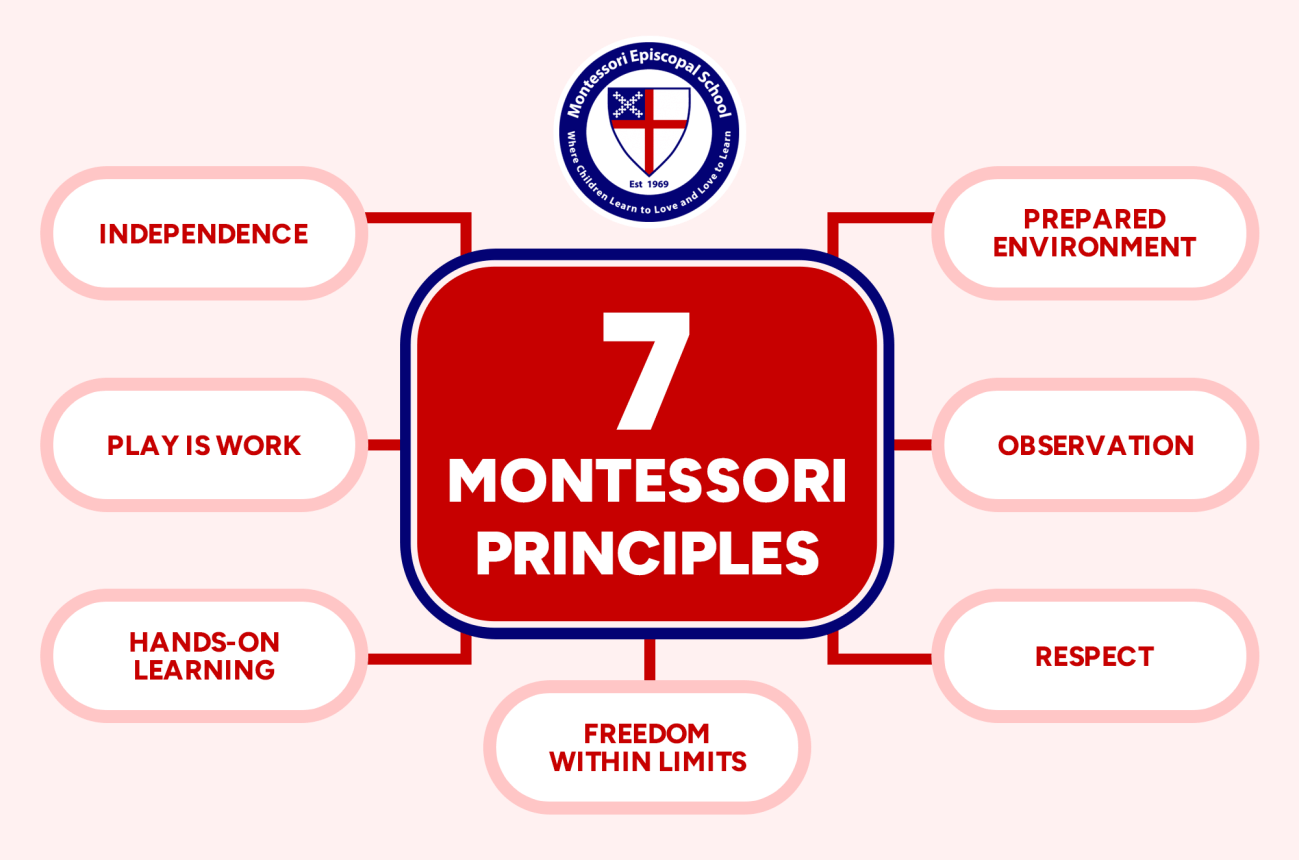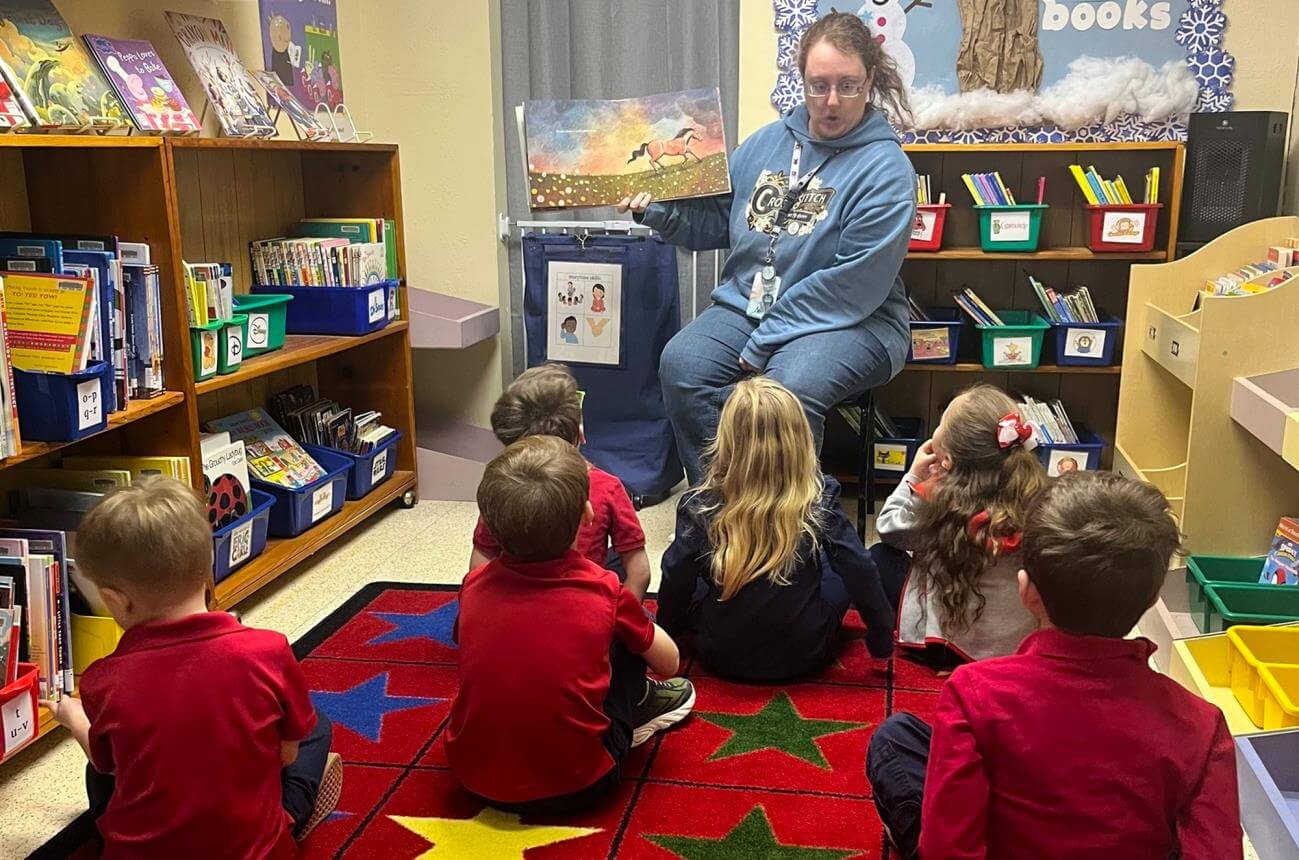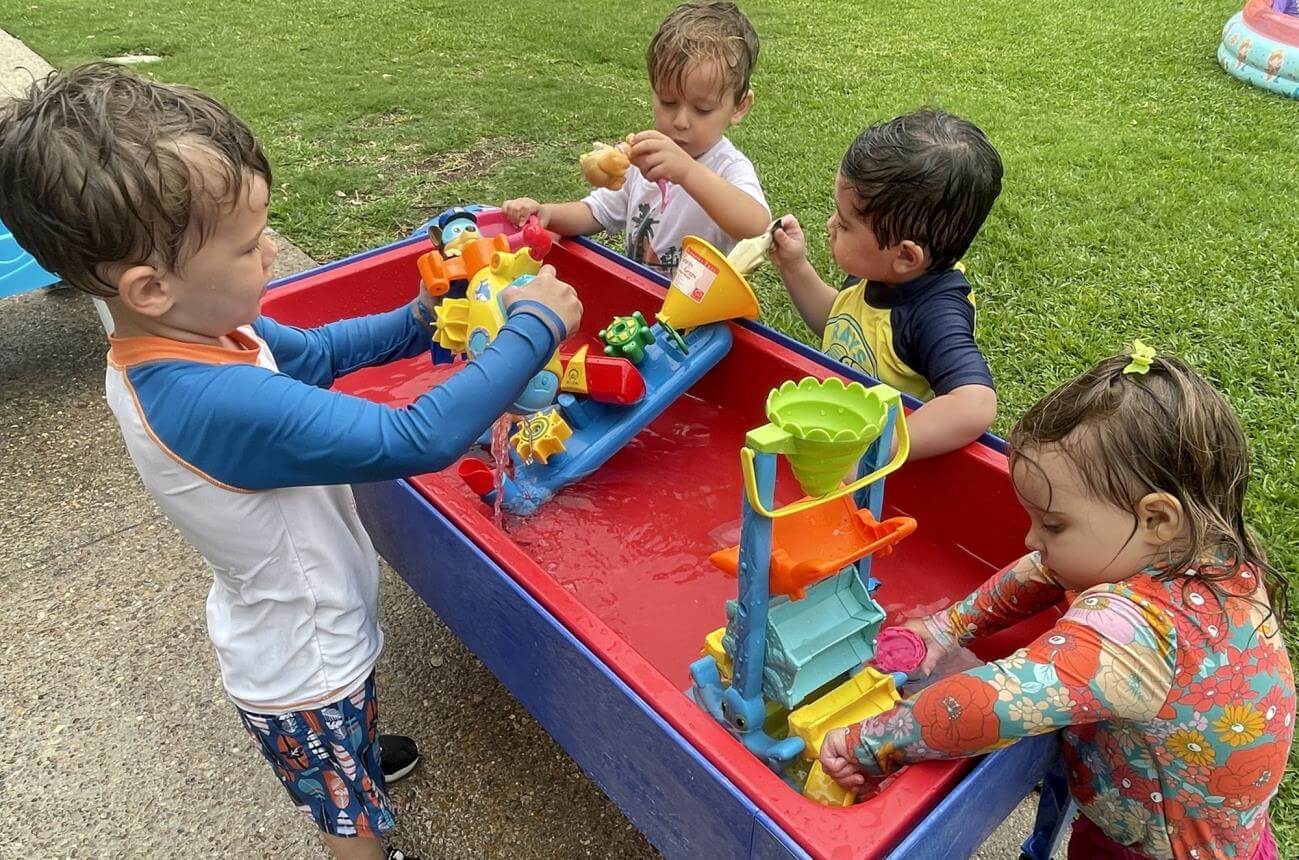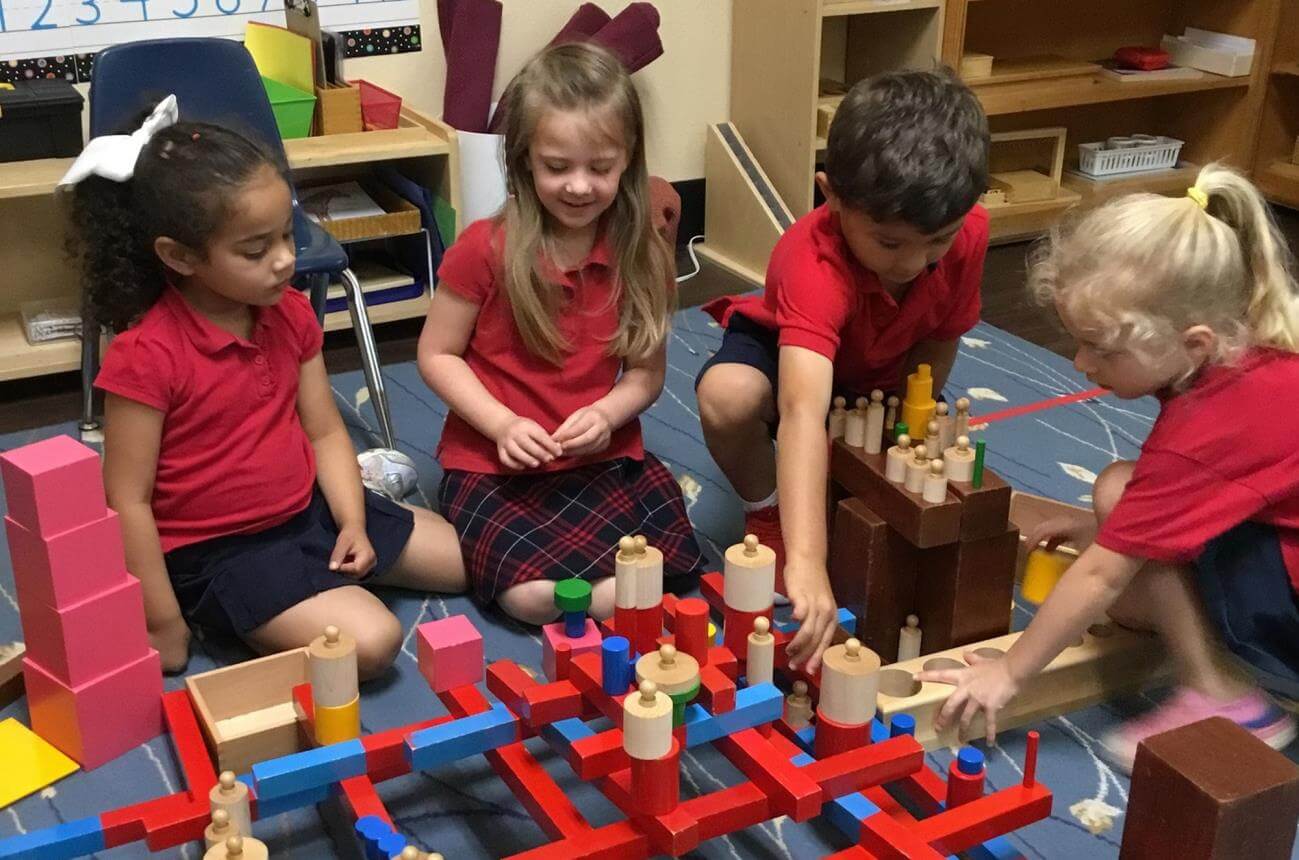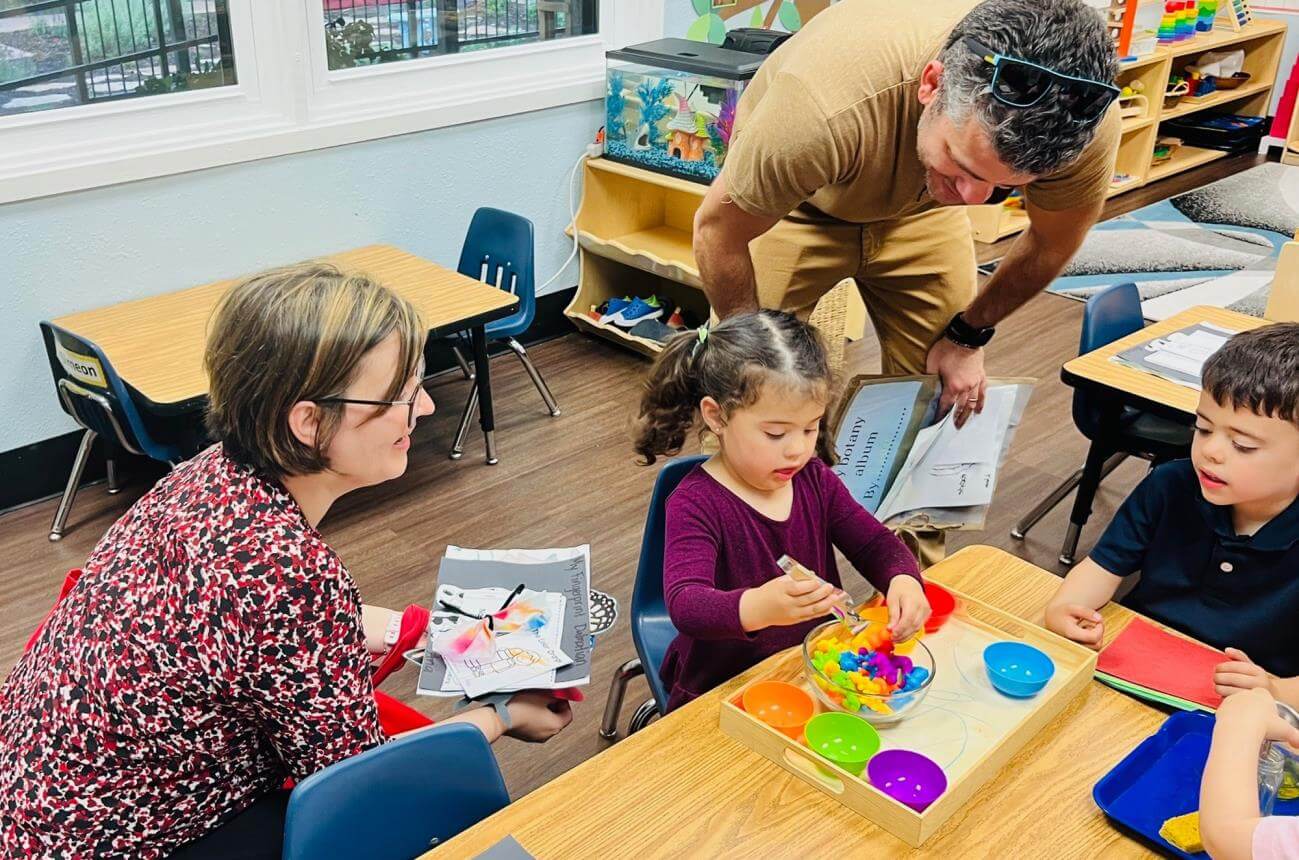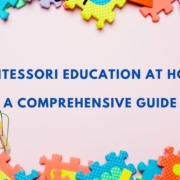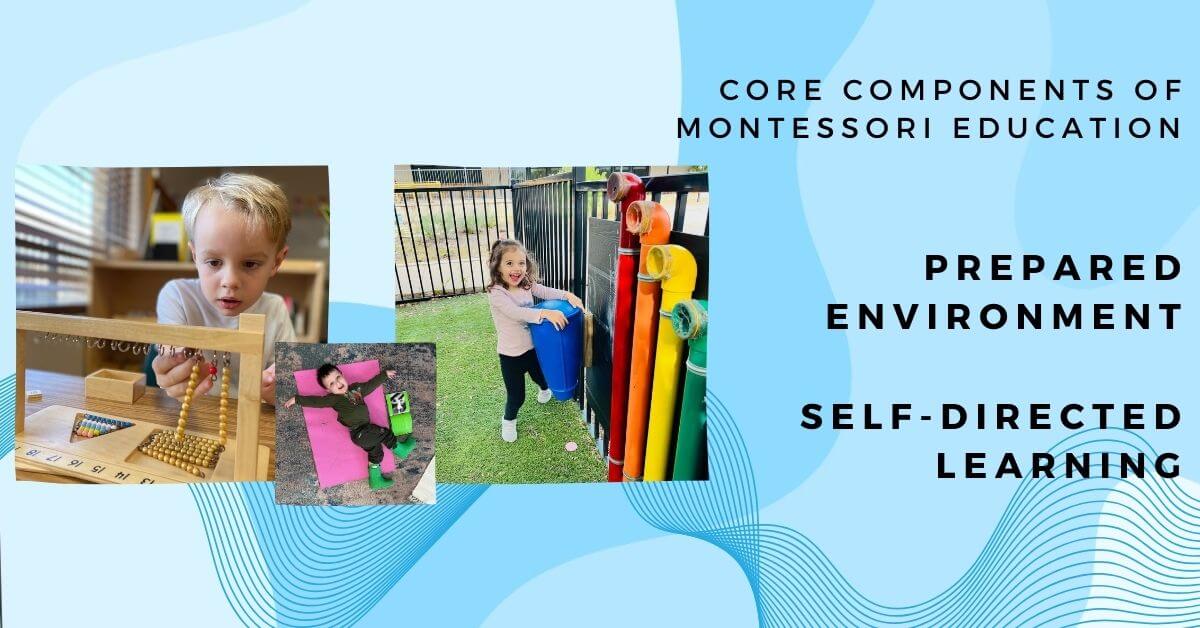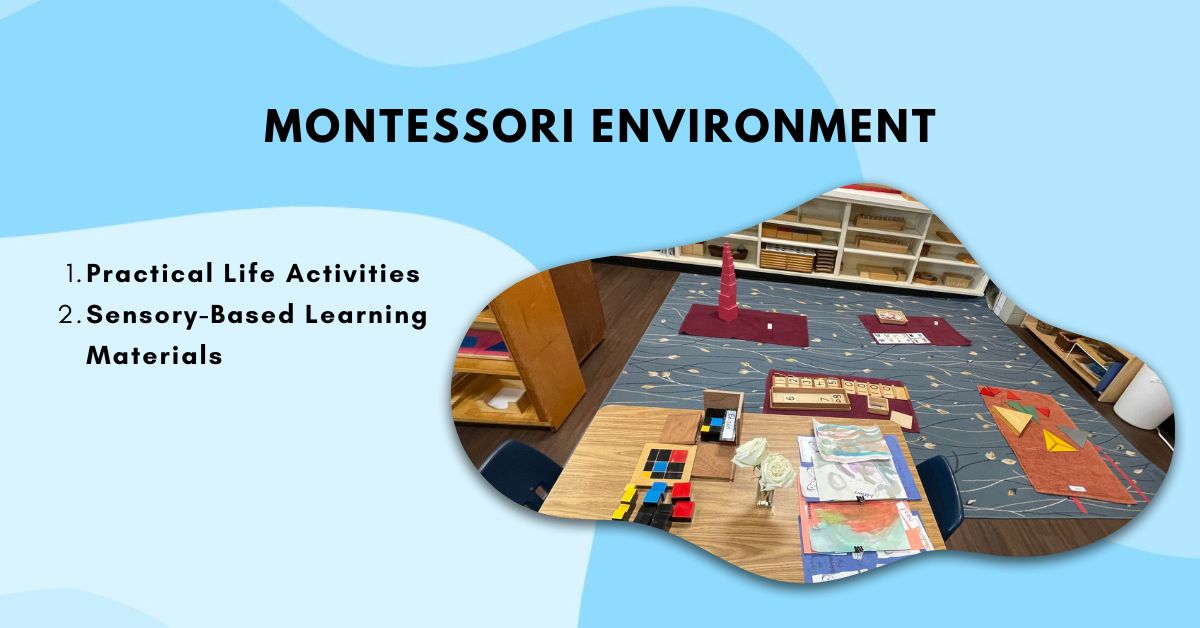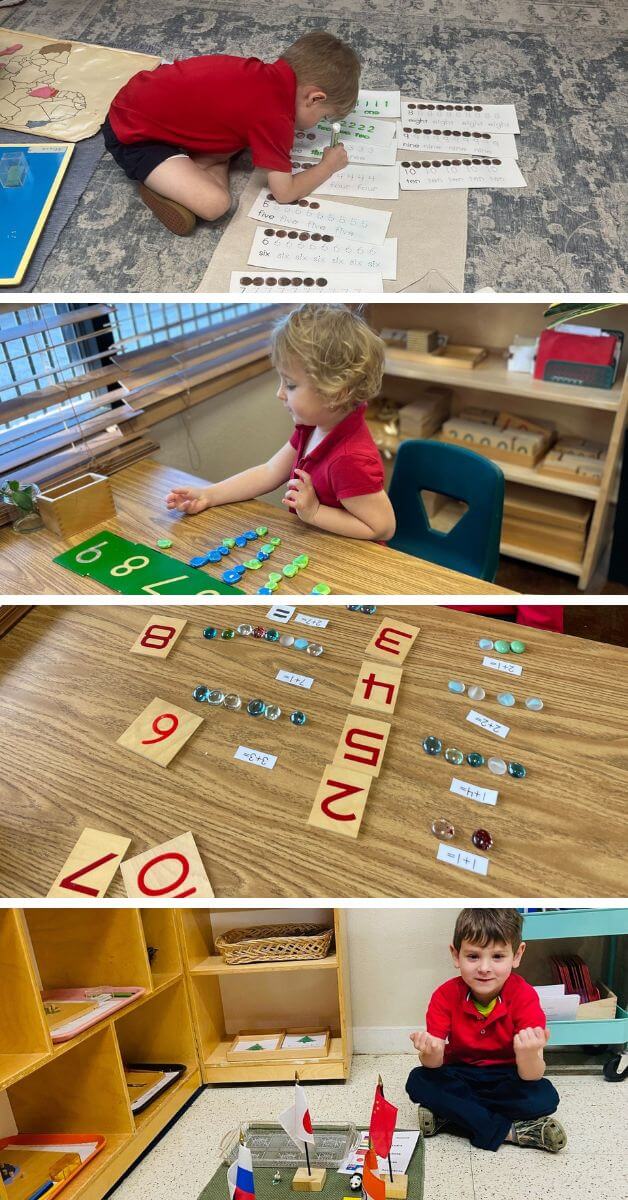Unlocking the Benefits of Montessori Education: A Comprehensive Guide for Parents
Montessori education is more than a teaching method; it’s a nurturing philosophy that inspires independence, curiosity, and a lifelong love of learning. Rooted in respect, discovery, and Christian values, Montessori education offers children the freedom to explore, grow, and reach their unique potential in a structured, caring environment.
This guide aims to illuminate the enriching benefits of Montessori education, from fostering early academic skills to nurturing personal growth and spiritual development. Whether new to Montessori or seeking deeper insight, join us as we explore how this distinctive approach shapes well-rounded, capable, and compassionate learners ready to thrive in today’s world.
Understanding the Montessori Method of Teaching

The Montessori method of teaching is a distinct educational approach emphasizing self-directed learning, sensory exploration, and a deep respect for each child’s natural curiosity. Pioneered by Dr. Maria Montessori, this method has transformed how children engage with learning materials and develop foundational skills.
Fundamental Principles of the Montessori Method
The Montessori method is grounded in principles that foster independent thought, curiosity, and a passion for learning. Children are encouraged to engage with materials that match their developmental stage and personal interests, promoting growth naturally and enjoyably.
- Self-Guided Exploration: Children select activities that interest them, empowering them to follow their natural curiosity and make learning enjoyable.
- Respect for the Individual: Montessori classrooms honor each child’s unique learning style, adapting to their pace and preferences.
- Hands-On Engagement: Sensory materials are central to the Montessori method, helping children understand complex concepts through touch and movement.
- Collaborative Community: In multi-age classrooms, students work together, fostering a strong sense of cooperation and respect.
Through these principles, Montessori provides a holistic educational environment that cultivates academic and social skills.
How Montessori Differs from Traditional Education
Montessori classrooms differ significantly from traditional learning settings. They emphasize a child-centered approach where students learn at their own pace. This setup allows children to take control of their education in a supportive and structured environment.
- Child-Centered Learning: Unlike traditional classrooms, the Montessori method encourages children to lead their learning journey, making choices that align with their interests.
- Multi-Age Classrooms: Children of various ages learn together, allowing younger students to observe and learn from older ones, while older students reinforce skills by mentoring their peers.
- Teacher as Guide: Teachers in Montessori classrooms act as facilitators, supporting children’s growth rather than directing the entire class through a fixed curriculum.
- Focus on Independence: Children are encouraged to work independently, developing the ability to solve problems and complete tasks independently.
By focusing on these elements, Montessori classrooms create a nurturing, non-competitive environment where students build confidence and self-reliance.
Benefits of Hands-On Learning and Independence
Hands-on materials are central to the Montessori method, allowing children to develop critical thinking skills. These resources make learning tangible and interactive, from math bead chains to language trays. Here’s how this approach benefits young learners:
- Self-Motivation: Children develop intrinsic motivation and a love for learning by choosing their activities.
- Problem-Solving Skills: Materials encourage children to think through challenges independently, helping them build resilience and persistence.
- Enhanced Social Skills: Multi-age groupings and peer interactions foster empathy, patience, and teamwork.
- Independence: Montessori’s focus on self-guided tasks nurtures confident, autonomous learners.
- Academic Foundation: Interactive materials help children grasp literacy, math, and practical life skills, preparing them for further academic success.
Hands-on learning in Montessori classrooms fosters a unique combination of academic and personal growth, building a foundation for lifelong curiosity and success.
Finding the Best Montessori Schools Near Me

Choosing the right Montessori school for your child is a big decision, and understanding what to look for can make all the difference. With Montessori education, it’s essential to find a school that truly embodies the values and practices of this unique approach. Here’s how to identify the best Montessori schools near you and ensure your child receives a high-quality educational experience.
What to Look for in a Quality Montessori School
A genuine Montessori school should embrace core principles like independence, self-directed learning, and respect for each child’s journey. Look for a classroom with multi-age groupings and various materials encouraging hands-on learning. Observe if the environment is calm and organized, with plenty of space for children to explore.
- Authentic Montessori Materials: Montessori schools use specialized learning materials designed to develop sensory, cognitive, and practical skills. Ensure the classrooms have these materials, which should be clean, well-organized, and accessible to students.
- Certified Montessori Teachers: Qualified Montessori teachers have specialized training in the Montessori method, allowing them to guide students in a way that supports individual growth and curiosity.
- Child-Centered Learning Environment: A Montessori classroom should be designed with the child’s perspective, featuring child-sized furniture and tools, open spaces, and natural lighting.
These factors contribute to a setting where children can thrive in their learning journeys.
Key Questions to Inquire When Choosing a School
Before enrolling your child, asking specific questions that reveal the school’s commitment to the Montessori philosophy is helpful. These questions can provide valuable insight into how the school operates and whether it aligns with your expectations:
- What is the teacher-to-student ratio? Smaller classes allow for more individualized attention, a vital component of the Montessori approach.
- How does the school encourage independence? Montessori schools prioritize self-guided learning, so look for a school that allows children to make choices and learn at their own pace.
- Are there opportunities for parent involvement? Many Montessori schools encourage family participation to build a supportive community around students.
These questions help you determine if the school truly follows Montessori practices and whether it’s a good fit for your family.
Exploring Accreditation and Montessori Certifications
When researching Montessori schools, checking for accreditation and certified staff is essential. Accreditation confirms the school meets the standards of recognized Montessori organizations, such as the American Montessori Society (AMS) or the Association Montessori Internationale (AMI).
- School Accreditation: Accreditation from organizations like AMS or AMI shows that the school adheres to high Montessori standards and best practices.
- Teacher Certifications: Montessori-certified teachers have undergone rigorous training to understand and apply the Montessori philosophy. Look for staff with credentials from reputable Montessori institutions.
- Ongoing Professional Development: Quality Montessori schools support teachers with continuing education to ensure they stay updated on best practices in Montessori education.
Accreditation and certification give you peace of mind that the school provides an authentic Montessori experience and is committed to quality education.
Exploring the Montessori Philosophy

The Montessori philosophy is rooted in the idea that each child is naturally curious, capable, and eager to learn. Dr. Maria Montessori’s approach emphasizes respect for individual development, hands-on learning, and fostering independence. Here, we’ll explore the core values of the Montessori philosophy and how they shape a nurturing, growth-oriented environment for children.
Core Values of the Montessori Philosophy: Respect, Curiosity, and Growth
At the heart of the Montessori philosophy is a profound respect for each child as an individual. Montessori schools believe every child has unique abilities and interests, which should be honored and encouraged. This respect is woven into every aspect of the classroom, from the design of learning materials to the ways teachers interact with students.
- Respect for Individual Pace: Montessori classrooms allow children to learn at their own pace, ensuring they grasp concepts fully before moving on to new challenges.
- Curiosity-Driven Learning: Activities are designed to inspire curiosity and encourage peers to ask questions and explore in-depth topics.
- Focus on Personal Growth: Rather than comparing children against standardized benchmarks, Montessori education emphasizes personal growth and the development of inner motivation.
Through these values, Montessori schools create an environment where children feel inspired to learn, setting the stage for holistic development.
Encouraging Self-Motivation and Independent Learning
A core aspect of the Montessori approach is fostering independence and self-motivation. Montessori classrooms are set up to encourage children to make choices, solve obstacles, and take responsibility for their actions. Teachers, known as “guides,” offer support without directing the learning process, allowing children to discover the joy of learning for themselves.
- Freedom to Choose Activities: Children can choose activities that interest them, fostering a love of learning by focusing on their passions.
- Self-Paced Progression: Montessori classrooms enable children to progress through materials as they are ready, building a natural sense of achievement.
- Opportunities for Self-Correction: Montessori materials are designed to provide feedback, allowing children to identify and correct mistakes independently.
These elements of self-motivation and independence help children build confidence, problem-solving skills, and resilience that they carry into other areas of life.
How the Montessori Philosophy Promotes Holistic Development
The Montessori philosophy emphasizes development across all areas—intellectual, social, emotional, and physical. By recognizing that each aspect of growth is interconnected, Montessori schools aim to cultivate well-rounded individuals.
- Intellectual Growth: Montessori’s hands-on materials engage children’s senses, helping them understand complex concepts through exploration and experimentation.
- Social Development: In a Montessori classroom, children interact across ages, developing social skills, empathy, and a sense of community.
- Emotional Wellbeing: The Montessori philosophy fosters self-esteem and emotional intelligence by honoring each child’s journey.
- Physical Development: Practical life activities develop fine and gross motor skills while promoting independence.
Montessori’s focus on holistic growth provides children with a balanced foundation, preparing them to become curious, compassionate, and capable individuals. Through this philosophy, children achieve academic skills and develop essential life skills that help them thrive in all aspects of life.
Conclusion
The Montessori approach to education offers a truly transformative experience for children, nurturing their innate curiosity, independence, and passion for learning. By fostering an environment that respects each child’s unique journey and encourages hands-on exploration, Montessori education lays a robust foundation for lifelong growth and success. Through respect, self-motivation, and holistic development, Montessori schools help children become well-rounded, confident, and compassionate individuals ready to take on the world.
If you’re ready to unlock the benefits of Montessori education for your child, don’t wait—reach out today to learn more about Montessori Episcopal School. Visit our contact page or call us at (972) 895-9050 to schedule a visit and see the Montessori difference in action!
